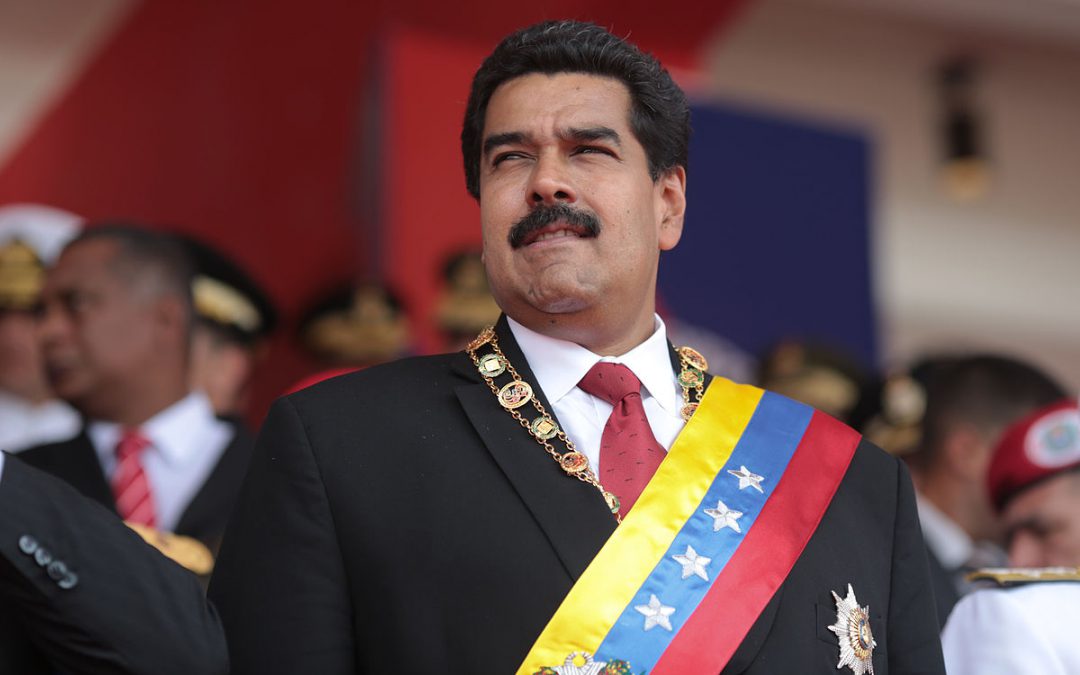WASHINGTON – Once the most prosperous country in Latin America, Venezuela now has the worst hyperinflation in the world, and the resulting exodus of its citizens may produce more refugees than the Syrian conflict, according to some experts.
Venezuela is experiencing food shortages, high costs of living and a decline in health services. From 2015 to 2017, the estimated population of Venezuelan citizens living abroad has more than doubled, reaching 1.6 million last year, according to the International Organization for Migration.
“The levels of, for example, lack of public services, the level of starvation, the level of malaria and other tropical diseases that you’re seeing, all of those that you see right now in Venezuela, that is what you would see normally in a country in conflict,” said Andrea Saldarriaga Jimenez, associate director at the Atlantic Council’s Adrienne Arsht Latin America Center.
Google Fusion Tables map created by Renzo Downey. Data courtesy of the International Organization for Migration.
Venezuela’s socialist economy and half of the government’s revenue rely on oil exports, according to the CIA World Factbook. The country’s proven oil reserves are the largest in the world.
But falling oil prices since 2014 have decimated the nation’s economy, and the International Monetary Fund said the inflation rate will reach 13,000 percent by the end of this year.
“The biggest paper bill was 100 Bolivares Fuertes—and now, they went to 100,000,” said former Bolivian President Jorge Quiroga during a forum at the Atlantic Council in February. “Imagine $100 bills, and inflation is such that you start printing $100,000 bills. And then imagine that you do that, and the 100,000 Bolivar Fuerte bill is now worth less than half a dollar.”
According to a study published by a consortium of Venezuelan universities in early January, 87 percent of Venezuelans live in poverty. Colombian Ambassador to the U.S. Camilo Reyes said that 85 percent of Venezuelans who seek medical care cannot afford or find it.
Venezuelan President Nicolas Maduro has consolidated power by using the Supreme Court to strip the legislature of its power, and the governing party has called for a presidential election on May 20, which the international community, including the United States, says is too soon and will unfairly favor Maduro. Opposition parties have called for a boycott of the elections, and violent protests against the government have rocked the nation under Maduro’s presidency.
Both Colombia and Brazil have increased military forces at their borders with Venezuela to manage the large numbers of migrants, Brazil doing so after some were found to have malaria, Zika and other tropical diseases. Colombia has stopped issuing temporary visas to Venezuelans.
Colombia is the country hit hardest by the refugee influx. In January, the government estimated that 600,000 Venezuelans were living in Colombia, up from 50,000 in 2015.
“We’re really not at a point where the numbers are really that high (compared with the 5.4 million Syrians who have fled their country), but if you think about 600,000 people in the last two years, that’s a pretty significant number,” said Saldarriaga.
The United States is already feeling some effects of the migrant influx. The Department of Homeland Security has not released immigration statistics for 2017, but 290,000 Venezuelans lived in the U.S. in 2016, up from 256,000 in 2015.
Some Florida lawmakers have called for President Donald Trump and DHS to add Venezuela to the list of countries included in the Temporary Protected Status program, which allows nationals of the countries to seek temporary asylum within the U.S.
Most of the first to leave Venezuela were higher income people who fled to Spain, the United States and Colombia. But now, middle- and low-income Venezuelans have been crossing the border into Colombia, and the Colombian army is cracking down on illegal immigration in the city of Cucuta.
The Colombian government controls the border at Cucuta, but the Colombia-Venezuela border is nearly 1,400 miles long, and few other government checkpoints exist, leaving most of the border unguarded.
The United States has pushed back against the Maduro regime. The latest iteration of President Donald Trump’s travel ban included seizing assets of more than 40 current and former pro-Maduro politicians in Venezuela.
In his trip last month to Latin America, Secretary of State Rex Tillerson criticized Maduro’s attempts to consolidate power, calling for a return to the constitution. In a joint press conference with Argentine Foreign Minister Jorge Faurie on Feb. 4, Tillerson said oil sanctions against Venezuela is on the table “because not doing anything to bring this to an end is also asking the Venezuelan people to suffer for a much longer time.”
However, the region is generally opposed to the proposition. Colombia, Mexico and several Caribbean islands have close economic ties to Venezuela, Saldarriaga said, and further economic collapse in Venezuela would in turn hurt them. Additionally, an oil embargo could exacerbate the migrant crisis by shutting off the remainder of the economy.
“Sanctioning Venezuelan oil or in effect prohibiting the oil to be sold in the United States, or for the United States as well to sell or provide oil to Venezuela, or refined products, is something we continue to consider … our disagreements are with the Venezuelan regime, not the Venezuelan people,” Tillerson said.
Saldarriaga disagreed: “The more that you impose sanctions, the more the population is going to feel these costs.”
According to a poll of Venezuelans published by the Atlantic Council in late February, 60 percent believe international assistance is necessary to improve the country’s economy. However, 53 percent of those surveyed said they had no confidence in the U.S. government.
“Every time the U.S. is involved, Maduro himself uses this as an anti-imperialistic propaganda, and so it really strengthens the position not only of President Maduro, but the Venezuelan government more broadly,” Saldarriaga said.


